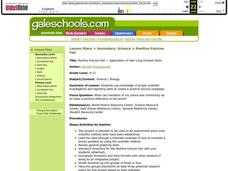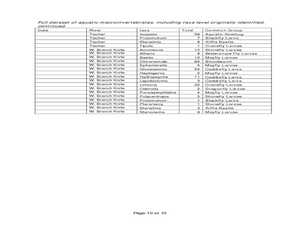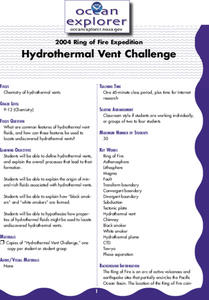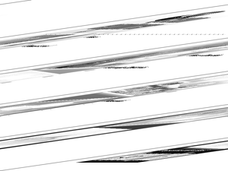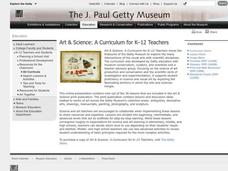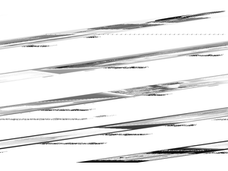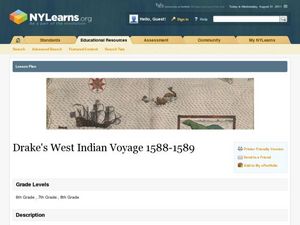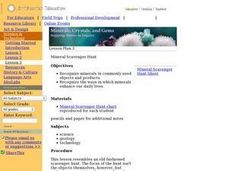Curated OER
Forces in Earth
In this Earth's forces worksheet, students will review the characteristics of earthquakes, including types of faults. Students will interpret a seismograph read-out from an earthquake. Students will complete 10 fill in the blank...
Curated OER
Positive Futures Fair - Application of Year-Long Content Skills
Students demonstrate the knowledge of proper scientific investigation and reporting skills. They decide how to make a positive difference in the world using these skills.
Curated OER
The Human Mind
Young scholars read and discuss twin studies to explore the debate of nature vs. nurture. They create a list of characteristics and then look for evidence of whether it is primarily a genetic or environmental characteristic. All of the...
Curated OER
Positive and Negative Charge Using Balloons
Fourth graders observe and explain how balloons rubbed on a shirt create positive and negative charges. In this positive and negative charge lesson plan, 4th graders record their results and explain their findings.
Curated OER
Radiation From Space
In this space worksheet, students will review different aspects of light, sound, and radio waves in space and the use of different types of telescopes. This worksheet has 17 fill in the blank statements.
Curated OER
Groundwater as Part of the Water Cycle
Ninth graders study the effects of soil and rocks on filtering groundwater. In this groundwater lesson students complete a lab activity that includes sources of contamination.
Curated OER
Aquatic Invertebrates
Learners examine the impact that human development has on streams. In this stream sampling lesson students compare macroinvertebrate data and graph it.
Curated OER
Hydrothermal Vent Challenge
Young scholars discover common features of hydrothermal vent fluids. They use this knowledge to locate possible undiscovered hydrothermal vents on the ocean floor.
NOAA
What's New?
Biodiversity in some areas is more diverse than one might think. Using a two-day lesson plan, pupils consider the biodiversity of the Hudson Canyon and the characteristics of one organism. They begin with an analysis of the common...
Curated OER
Rain Forest Research
Second graders explore the Rain Forest. In this research lesson, 2nd graders go online to gather information about Rain Forest animals. Students print and use the information to write about the many parts of the Rain Forest. Students are...
Curated OER
A STEP IN SPECIATION
Students place different subspecies of a CA salamander are placed on grid map of CA according to where samples were collected. Then discuss patterns of their distribution, their likely evolutionary relationships, and probable sequence of...
Curated OER
Properties of Parabolas
Learn to identify the properties of parabolas. Students define parabola as the locus of all points equidistant from a fixed point and a fixed line. Also, interpret the equation for a parabola in vertex form and gain a visual...
Curated OER
Reduced Fare
Students discover the relationship between tectonic plate boundaries and the communities of life that thrive at such boundaries. In this biology lesson, students find that methane from oxidized carbon in sediments provides nutrients for...
Curated OER
Ancient Bugs
High schoolers describe Archaea. In this biology lesson plan, students examine biological communities and the role Archaea plays. High schoolers will compare and contrast the Archaea with bacteria and eukaryote.
Curated OER
Chapter 10: Chemical Calculations and Chemical Equations
In this chemical equations worksheet, students write and balance chemical reactions. They complete 98 short answer and problem solving questions on molarity and chemical equations.
Curated OER
The Chemistry of Ceramics
Learners compare the characteristics of a fired porcelain sculpture to the clay used to create it. They discuss the physical and chemical changes that occur in the clay as it is heated and then create their own clay sculpture. This...
Curated OER
The Chemistry of Ceramics
Students make ceramic sculptures to understand how clay works. In this sculpture instructional activity, students learn about porcelain sculptures to understand how heat can turn clay into a hard ceramic surface. They then experiment...
Curated OER
The Tell-Tale Plume
High schoolers examine hydrothermal vents. In this ocean instructional activity, students identify changes in physical and chemical properties of sea water caused by hydrothermal vents.
Curated OER
Drake's West Indian Voyage 1588-1589
Young scholars investigate several maps detailing Sir Francis Drake's voyages. In this geography lesson, students practice reading maps and locating the precise locations of where Sir Francis Drake visited. Young scholars create an...
Curated OER
Submersible Designer
Students work in groups to design, build, and test a submersible prototype. In this engineering lesson, students learn about the importance and design of submersible vessels and apply their knowledge by building one of their own. They...
Curated OER
What Do Plants Need?
Learners experiment with plants. In this plant lesson, students research the needs of plants. Learners determine if all plants have the same requirements for growth. In small groups, students experiment with different plants.
Curated OER
Mineral Scavenger Hunt
Students complete a scavenger hunt worksheet as they find examples in their classroom, at home, etc., of minerals. Excellent worksheet!
Curated OER
Growing Barley for Use in Biosynthesis Experiments
Students attempt to determine the optimum growing conditions for barley. They assess the effects of a number of substances such as ammonium chloride and urea on the plants
Curated OER
"ART ZOO 'Blacks in the Westward Movement', 'What Can You Do with a Portrait', and 'Of Beetles, Worms, and Leaves of Grass'"
Students study black history, examine portraits and portrait making and create their own portraits, and investigate their natural environment. This humanities lesson provides a text that can be used to teach lessons in black history,...



